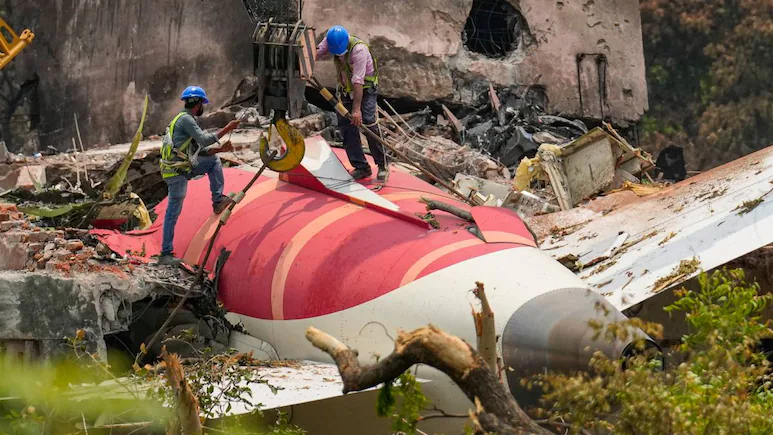New details have emerged in the investigation of last month’s fatal Air India crash in Ahmedabad, Gujarat, as U.S. media reports reveal chilling cockpit audio between the two pilots moments before the Boeing 787 went down. According to the Wall Street Journal, cockpit recordings indicate that Captain Sumeet Sabharwal moved the aircraft’s fuel control switches to the “cutoff” position just after takeoff—prompting confusion and panic from First Officer Clive Kunder.
The preliminary report from India’s Aircraft Accident Investigation Bureau (AIIB), cited by the publication, states that the fuel to both engines was cut off within one second of each other, shortly after the aircraft became airborne. The plane crashed just 32 seconds after takeoff, killing 241 people onboard and 19 on the ground. One passenger miraculously survived.
The Wall Street Journal reports that while the AIIB findings suggest it was the captain who moved the switches, the report does not yet determine whether it was a deliberate act or a tragic error. Aviation safety experts and U.S. pilots familiar with the investigation have echoed the importance of not drawing conclusions prematurely.
India’s Civil Aviation Minister Kinjarapu Ram Mohan Naidu urged the public and media to avoid speculation. “We must not jump to conclusions based on a preliminary report,” Naidu said. “There are technicalities involved. Let’s wait for the final report, which will provide a comprehensive picture.”
The International Federation of Air Line Pilots’ Associations (IFALPA) also issued a cautionary statement, warning that extrapolating from an interim report could distort the investigative process. “The preliminary findings raise questions, but do not provide answers,” the federation said, emphasizing the importance of letting the investigation follow its full course.
In response to the preliminary findings, Air India conducted immediate precautionary inspections of the Fuel Control Switch (FCS) locking mechanisms across its fleet of Boeing 787-8 aircraft. The airline reported that no issues were found during the checks, which were ordered by the Directorate General of Civil Aviation (DGCA). Air India also confirmed that Throttle Control Modules (TCM), which include the FCS, had been replaced across its 787-8 fleet in line with Boeing’s maintenance schedule.
As international investigators and regulatory agencies continue to examine the crash, the aviation community remains focused on ensuring that conclusions are based on verified evidence — not speculation.
Ask ChatGPTTools
ChatGPT can make mistakes. Check important info. Se

